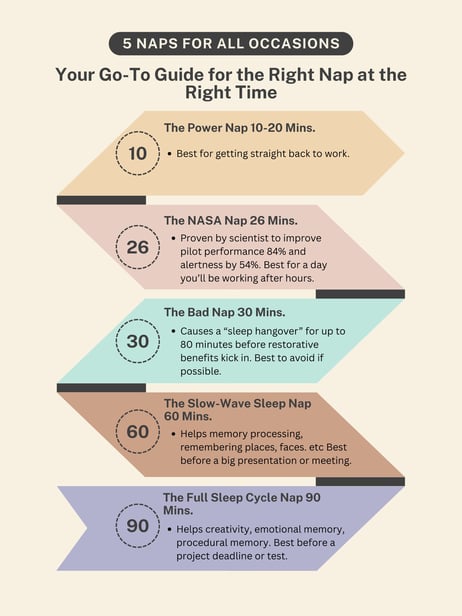Optimal Sleep for Energy: Science-Backed Habits to Supercharge Your Day
Discover the sleep habits that fuel all-day energy, improve focus, and support longevity—backed by science and real-life results. This post includes affiliate links to products I trust and personally use.
RECOVERYSLEEP
5/7/20256 min read


Let’s Talk About the Sleep-Energy Connection
“Sleep is the best meditation.” – Dalai Lama
Let’s be real—most of us aren’t sleeping as well as we should. According to the CDC, 1 in 3 adults don't get enough sleep, and even those who do often wake up feeling groggy and drained. In a world that glorifies hustle, rest is the first thing sacrificed.
I’ve been there too. Sleep and I have never had the best relationship, which is why I understand its importance so well. Throughout my childhood, I struggled to sleep, which turned into my college years where I would stay up late studying, playing video games, or just avoiding sleep. During that time, I found relief in ZZZquil—wow, sleep was actually nice! But I knew I couldn’t rely on that forever, so I began looking into ways to improve my sleep naturally.
After years of working on my sleep routine, I’ve discovered one simple truth: when you sleep better, you live better. This article is your guide to mastering sleep habits that fuel energy, focus, and longevity—without relying on sleep aids like I once did.
Why Sleep Impacts Your Energy So Much
Sleep isn’t just about rest—it’s about recovery. Your body runs through multiple sleep cycles each night, including deep sleep and REM. These cycles are critical for:
Restoring your muscles and nervous system
Balancing your hormones (especially cortisol and melatonin)
Regulating your metabolism and immune function
Recharging your brain for memory, focus, and emotional control
When these cycles are disrupted—even slightly—your energy takes a hit. You wake up foggy, sluggish, and unmotivated. Over time, it compounds.
My Experience:
When I was at my worst with sleep, I noticed I was unfocused, impatient, and constantly hitting an energy wall around 2 PM. It didn’t matter how much caffeine I drank—I just felt like I was dragging through the day. I thought caffeine didn't affect me, but then I'd find myself up all night and repeating the cycle the next day, tired and pushing through. That was a big wake-up call. Sleep wasn’t optional anymore—it became essential.
How Much Sleep Do You Really Need for Optimal Energy?
While the “8 hours” rule is a good baseline, the optimal amount of sleep can vary:
Adults generally need 7–9 hours of sleep per night
Sleep needs may increase with physical activity or high stress
Sleep quality (uninterrupted, deep sleep) is as important as quantity
Signs you’re not getting enough: brain fog, mid-afternoon crashes, irritability, frequent illness
What I’ve Found Works Best for Me:
Personally, my sweet spot is between 7.5 to 8 hours of sleep. I’ve tracked it enough to know that anything under 7 hours—even if I feel fine in the morning—catches up to me by midweek. My best routine is getting to bed around 10:00 PM and waking up around 6:00 AM. It doesn’t always happen perfectly, but when I hit that window consistently, I’m noticeably more focused and productive.
Proven Sleep Habits That Boost Energy Naturally
Great sleep isn’t a mystery—it’s a series of repeatable habits. Here are the top energy-boosting sleep habits you can start tonight:
Stick to a regular sleep schedule
Avoid blue light 60–90 minutes before bed
Create a wind-down routine
Limit caffeine (Especially in the afternoon in my experience)
Cool, dark, and quiet environment
My Routine & Tips:
My nighttime routine has been a game-changer. I put my phone away an hour before bed and use dim light to wind down with a book. This is also when my wife and I catch up on the day before bed. I also make sure the room is as dark as possible with a noise machine to block out distractions (I love the sound of rain to sleep). The biggest change for me? Swapping late-night scrolling for reading—it clears my mind and helps me sleep more deeply, without getting stuck in the endless cycle of one more video.
What to Do If You Wake Up Tired
Even with good sleep habits, off nights happen. Here’s how to bounce back and support your energy the next day:
Get sunlight ASAP
Move your body
Hydrate and eat a high-protein breakfast—this helps give you energy for the day
Don’t hit snooze repeatedly
Nap strategically if needed
My Go-To Energy Boosters:
When I have a rough night, I double down on my morning movement. Even five minutes of increased movement resets my energy better than coffee. I also do some quick bodyweight movements—like squats or shoulder rolls—to wake up my nervous system. One thing I don’t do anymore? Drink caffeine after 1pm. That always keeps me up all night. And if I really need a boost, a nice walk around lunchtime helps me reset without ruining my nighttime sleep.
Supplements and Tools That May Help
Sometimes your sleep needs a little extra support. Here are some low-risk tools and supplements that might help:
Melatonin – A popular option to reset your sleep-wake cycle, especially helpful for jet lag or shift changes. (Use with care—some people feel groggy the next day.)
Magnesium glycinate – A calming mineral that helps relax your muscles and nervous system for deeper sleep. (A great natural alternative to melatonin—non-habit forming and gentle on the body.)
L-theanine – An amino acid that promotes relaxation and stress reduction without sedation. (Another effective melatonin alternative, especially if racing thoughts keep you up.)
Hatch Sound Machine – I use this specific sound machine for its sunrise alarm, great for a gentle wake-up without blaring alarms.
Blackout curtains or sleep masks – Control light exposure and support your body’s natural circadian rhythm. I opt for curtains, but this sleep mask has the best reviews on Amazon for the price.
Sleep trackers – Devices like Oura, WHOOP, or Fitbit offer insights into your sleep patterns. (I personally don't like sleeping with things on my wrist, but I have used Fitbit in the past and the sleep tracking was pretty interesting to track.)
Personally, I keep things simple. I’ve found that a basic melatonin supplement—nothing fancy—does the trick when I need help falling asleep, especially after travel or stressful days. I also swear by my sound machine. There’s something incredibly calming about a consistent, neutral hum that blocks out the little noises that can break your sleep cycle.
Blackout curtains were another game-changer for me. Once I installed them, my room transformed into a true sleep sanctuary. It’s amazing how much light—even from a streetlamp—can mess with your body’s melatonin production.
I’ve tried using sleep trackers before, and while the data was interesting and occasionally helpful, I just couldn’t get used to wearing something on my wrist all night. Sleep is all about comfort for me, so if something disrupts that—even in the name of science—I skip it.
Important Note: Before adding any supplements to your routine, especially if you’re managing a health condition or taking prescription medications, it’s always a good idea to consult with your healthcare provider. They can help you make the best decision based on your personal health needs.
Important Note 2: Some links in this post are affiliate links, which means I may earn a small commission at no extra cost to you. I only recommend what I personally use and trust.
Start Tonight: One Habit, One Win
Sleep is the original performance enhancer. If you want more energy, better focus, and a stronger body, it all starts with your nighttime routine. The best part? You don’t need a prescription—just a commitment to consistent habits.
Final Thought:
My #1 piece of advice: Don’t wait until burnout to fix your sleep. Start with one small change—like setting a consistent bedtime or avoiding screens before bed—and build from there. The results aren’t always instant, but they’re powerful. And once you start sleeping well consistently, you’ll wonder how you ever functioned without it.
Take Action: Start Your Better Sleep Journey Today
Feeling drained? Pick one habit from this article to apply tonight and track your progress. Challenge yourself to log your bedtime and energy levels over the next week to see the difference it makes.


Enjoyed this post? Want more tips on boosting energy naturally?
Subscribe to our newsletter for weekly wellness insights!
Vital Adjustment
Disclaimer
Vital Adjustment is not a healthcare facility. No doctor -patient relationship is formed as a result of using our website, resources or templates. All information is strictly for information and educational purposes only. If you need specific healthcare advice, you should contact your primary care.
NEWSLETTER
© 2025. All rights reserved.
Click here to be redirected to our newsletter Vital Wellness Weekly. Where we dive deeper on topics we discus in our blog and podcast.
